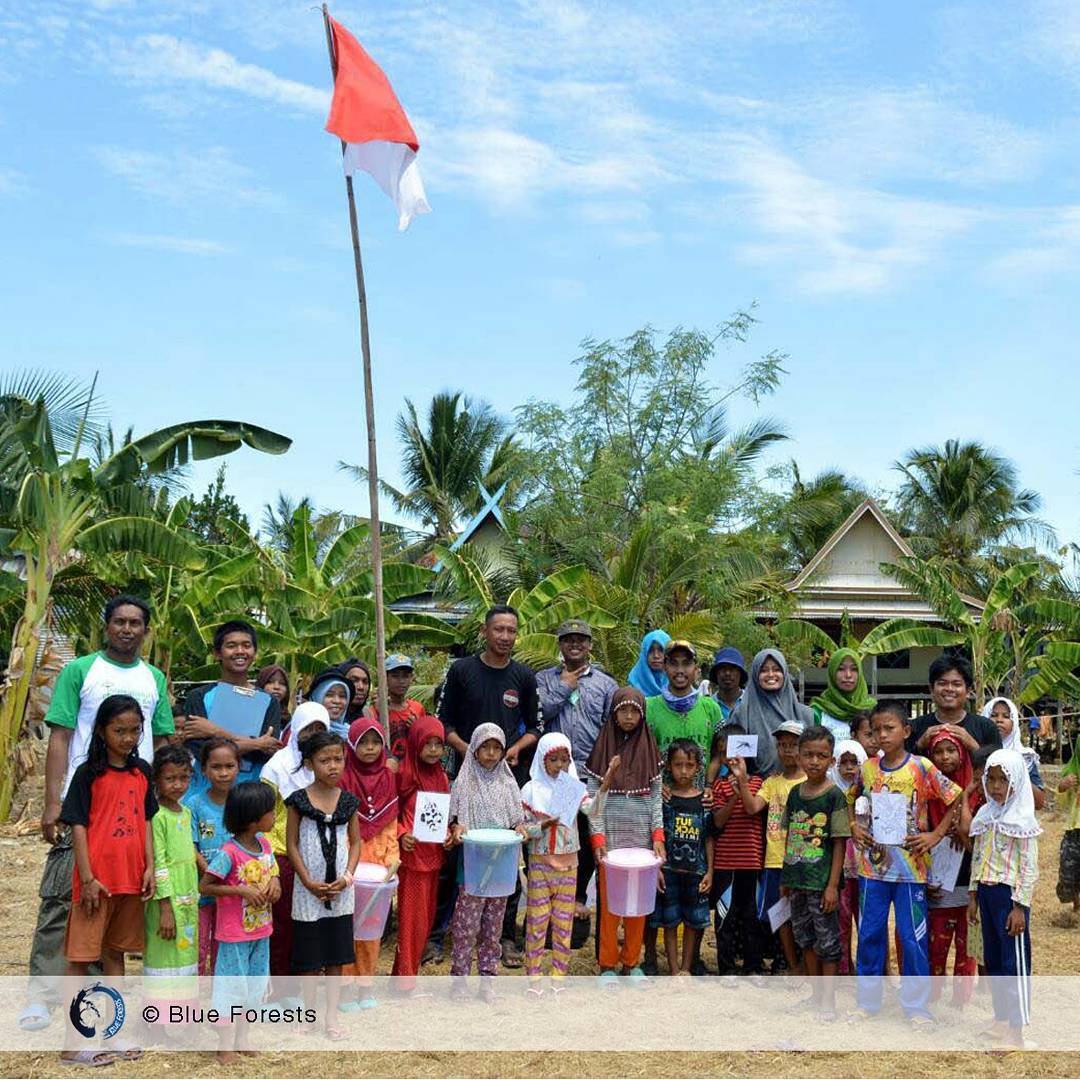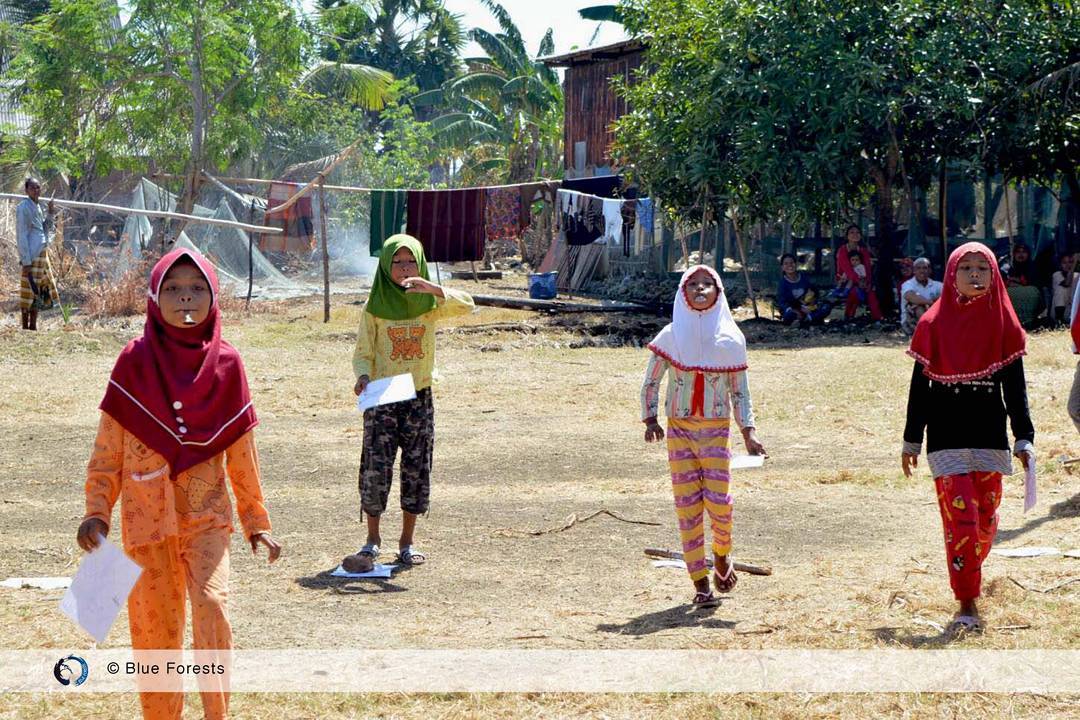There was something unique about celebrating Indonesia Independence Day in Tanakeke Island. A lot of traditional games tested the participant’s physical skill and their knowledge about the ecosystem in the village. Children, women, teenagers, and the elderly mingled each other to understand the independence mean in their own way. It was not casual traditional games that played on 16 August 2016, but Blue Forests combined it with environmental education. We named it as Village Ecosystem Sacks Run and Marine Life Marbles Race.
Playing those games was not easy at it seems. In Village Ecosystem Sacks Run, the participant must wear the sack, run for few meters, take the biota picture, and run again until the finish line. In the finish line, the participant must put the biota picture on the right ecosystem picture. So, it was not the fastest you arrive, the more chance you win. The game rule was same as Marine Life Marble Race. The difference was the participant only walk to the finish line, but they must clamp the spoon with a marble on it.
The competition was followed by at least 30 local people in the Bungung Lompoa, Balangdatu Village, Tanakeke Island. The main theme of this celebration was managing natural wisely for independence livelihood.
* * *
One day before the Independence Day, the Blue Forests team researched the condition of seagrass in the coastal island of Tanakeke. These routine activities are carried out every 6 months. The aim of this activity is to ensure the seagrass condition are not endangered and damaged. So that they can still enjoy the fish that live around seagrass beds, mangroves and coral reefs around the island.
For Tanakeke people, independence means they are easy to access to get good food from agricultural in a limited area of the island, and fish and other marine life that could sustain them.
Since three years ago, they have begun to enable the rice field rainfed areas that have been left. Approximately 100ha of rice fields managed by the communities. They hope they can suffice the need for Tanakeke community, so they do not just rely on the supply of land.



